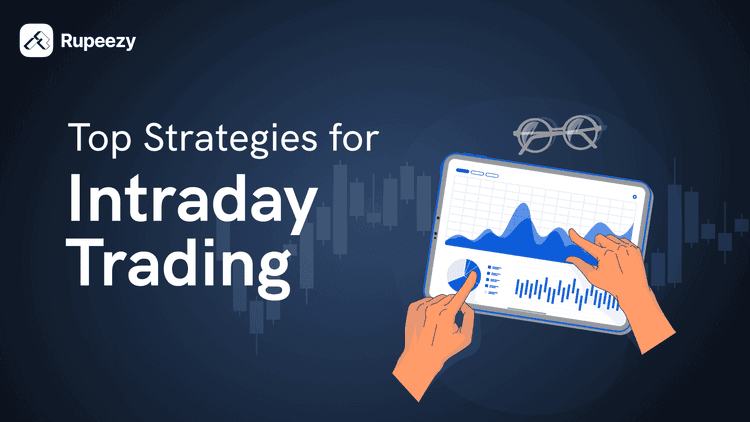Types of Demat Account in India


00:00 / 00:00
Today, the world of investment in India is rapidly becoming digital. The era of physical share certificates is over and now every investment is kept safe through a Demat account. According to the latest data, the number of demat accounts in the country has exceeded 20 crores and young investors have the largest share in it. In such an environment, it is very important to understand what are the different types of demat accounts and which one can prove to be the best option for your investment journey.
What is a Demat Account?
A Demat (Dematerialised) account is a digital locker where you can store shares, mutual funds, Etfs, bonds and other financial instruments electronically the need for physical certificates is completely eliminated. This facility was introduced by SEBI in 1996, laying the foundation for electronic holding.
Today, the number of Demat accounts in the country has seen tremendous growth. 46 million new accounts were added in 2024 alone, and the number has grown fourfold in the last five years. These accounts are based on the facility offered by leading depositories like NSDL and CDSL.
Trading Account vs Demat Account
The main purpose of a Demat account is to hold your securities safely like your digital wallet.
A trading account provides you with a useful platform to buy and sell in the stock market. It is your operation tool.
You usually keep both the Demat and trading accounts linked to each other, so that digital holding and trading can happen smoothly.
Major Types of Demat Accounts in India
Type | Suitable For | Key Benefit | Key Limitation | |
1 | Regular Demat Account | Resident Indian investors | Facility to hold all securities | AMC (Annual Maintenance Charges) |
2 | BSDA (Basic Services Demat Account) | Small investors (holding up to ?2 lakh) | Low or zero AMC | Limited holding value |
3 | Repatriable Demat Account | NRIs who want to transfer money abroad | Funds can be repatriated overseas | More FEMA rules and documentation |
4 | Non-Repatriable Demat Account | NRIs with income in India | Can invest income earned in India | Funds cannot be transferred abroad |
5 | Corporate Demat Account | Companies and institutions | Easy for bulk holdings and transactions | More documentation and higher charges |
6 | 2-in-1 / 3-in-1 Account | Bank-based investors | Bank + Trading + Demat on one platform | Higher cost and less flexibility |
1. Regular Demat Account : This is the most common and popular type of Demat account used by ordinary investors living in India. In this, you can keep all securities like shares, mutual funds, bonds, ETFs safe. This is the right choice for those who invest regularly and want to manage large holdings.
Pros:
Facility to hold all types of securities.
Easily available from most brokers and banks.
Suitable for long-term investment.
Cons:
AMC (Annual Maintenance Charges) are high.
May prove to be expensive for small investors.
2. BSDA (Basic Services Demat Account) : SEBI introduced BSDA in 2012 so that even small investors can invest in an affordable way. It is available only to those whose holdings are up to ? 2 lakh. If the investment is low then this is a great option.
Pros:
Low AMC or sometimes zero.
Ideal for small investors and beginners.
Easy and affordable to start investing.
Cons:
Maximum holding limit ?2 lakh.
Allowed to have only one BSDA account.
3. Repatriable Demat Account : This account is especially for those NRIs who want to send their earnings abroad by investing in India. It is mandatory to link it to an NRE (Non-Resident External) bank account.
Pros:
Easy to send the earnings from investment abroad.
Easy participation of NRIs in the Indian stock market.
Recognized under FEMA and RBI.
Cons:
More documentation and compliance.
Processes between banks and brokers can be complicated.
4. Non-Repatriable Demat Account : This is also for NRIs, but earnings cannot be sent out of India. It is linked to NRO (Non-Resident Ordinary) account. It is usually used by NRIs to invest income earned in India such as rent or dividend.
Pros:
Easy option to invest income earned in India.
Easy to comply with FEMA rules.
Convenient India-related investment for NRIs.
Cons:
Cannot send earnings abroad.
Useful only in India.
5. Corporate Demat Account : This account is designed for companies, LLPs, HUFs and other institutions. Its purpose is to manage large amounts of securities and provide benefits like ESOP to employees.
Pros:
Easy to manage large holdings and transactions.
Easy record-keeping for companies.
Helpful in ESOP and bonus share distribution.
Cons:
Documentation is more complex.
Charges and AMC are high.
6. 2-in-1 and 3-in-1 Demat Accounts : This facility is offered by most banks, where savings, trading and Demat accounts are linked on a single platform. It is considered convenient, especially for those who want to manage both banking and investments simultaneously.
Pros:
Banking and investment facility on a single platform.
The transaction and investment process is simple and fast.
Easy option for beginners.
Cons:
Costs and charges are relatively high.
Less flexibility in switching brokerages.
Why Understanding Types of Demat Accounts Matters
Every investor has different needs whether he is a resident of India or an overseas investor (NRI), an average speculator, a long-term investor, or a corporate agent and having the right type of demat account can be a real game-changer in your digital investing journey.
Savings on costs and fees : For example, if you have fewer shares, the AMC (annual maintenance charges) in a BSDA account is either very low or zero, while in a regular Demat, the charges are always applicable.
Regulations and compliance : An NRI who opens a regular Demat by mistake can fall into regulatory breaches. Choosing the right option for NRIs helps in compliance with FEMA and RBI, whether it is Repatriable or Non-Repatriable.
Convenience and cost-effective investment journey : The right Demat account makes your investment transition easy, especially if you are thinking long term, or are very active in trading. Choosing the right option can make transactions simple, fast and cost-efficient
How to Choose the Right Demat Account
There are many misconceptions among investors about demat accounts. It is important to have the right information so that investors can make informed decisions without any confusion. Let us look at some common myths:
Myth 1: “All Demat accounts are the same.”
The truth is that every Demat account is designed for different needs. For example, BSDA is for small investors, while Repatriable accounts are especially for NRI investors.
Myth 2: “Demat accounts are free forever.”
Many investors think that once opened, the account remains free forever. While the reality is that most Demat accounts are charged AMC (Annual Maintenance Charges). In BSDA, this charge can be low or zero.
Myth 3: “NRIs can use regular Demat accounts.”
This is wrong. NRI investors are only allowed to hold Repatriable or Non-Repatriable Demat accounts. Regular Demat accounts are only for resident Indians.
Myth 4: “Corporate Demat is only for big companies.”
Actually, Corporate Demat is not just for big companies. It can also be used by SMEs and startups, especially when they need to manage ESOPs or employee shares.
Open Free Demat Account with Rupeezy – Zero AMC !
In today’s time, the most important thing to start investing is a reliable and affordable Demat account. Rupeezy offers its customers Free Demat Account Opening and Zero AMC (Annual Maintenance Charges). This means that investors can start investing in the stock market, mutual funds and other securities without any additional cost.
Rupeezy is a SEBI-registered stockbroker, which provides a secure and fast platform. Not only is opening an account easy here, but users also get a seamless trading experience whether they are long-term investors or active traders.
Boost Your Trading Potential with MTF
Along with a free Demat account and zero AMC, investors can also access the Margin Trading Facility (MTF) on Rupeezy. This allows you to take larger positions in stocks even with limited capital, enabling you to participate in high-potential opportunities while keeping some funds free for diversification. MTF is a great tool for active traders who want to leverage their portfolio responsibly, but remember it magnifies both potential profits and losses, so disciplined usage is key.
Why Rupeezy?
Free Demat Account Opening
Zero AMC charges
User-friendly digital platform
Fast & secure transactions
Trusted SEBI-registered stockbroker
Investing with Rupeezy is absolutely hassle-free, where investors get the benefit of both convenience and cost-saving.
Conclusion
Demat account is your first and most important step into the world of investing. Choosing the right type of account can help you invest safely and conveniently based on your needs, investment amount and trading style. With Rupeezy you can open a Free Demat Account with Zero AMC and a completely seamless investing experience. Whether you are a new investor, an NRI or investing for a company, Rupeezy offers reliable and easy solutions for every kind of investor.
FAQs
Q1: What is a Demat account?
A Demat account is a digital locker where you can store shares, mutual funds and other securities in electronic form.
Q2: Is opening a Demat account free at Rupeezy?
Yes, opening a Demat account on Rupeezy is absolutely free and has Zero AMC.
Q3: What is the difference between a Regular and BSDA account?
Regular accounts can hold all types of securities, while BSDA is for small investors and AMC is low or zero.
Q4: Do I need a bank account to open Demat?
Yes, a Demat account needs to be linked to your bank account.
Q5: Can I trade directly from my Demat account?
No, securities are held in Demat accounts. A Linked Trading Account is required for trading.
The content on this blog is for educational purposes only and should not be considered investment advice. While we strive for accuracy, some information may contain errors or delays in updates.
Mentions of stocks or investment products are solely for informational purposes and do not constitute recommendations. Investors should conduct their own research before making any decisions.
Investing in financial markets are subject to market risks, and past performance does not guarantee future results. It is advisable to consult a qualified financial professional, review official documents, and verify information independently before making investment decisions.
Open Rupeezy account now. It is free and 100% secure.
Start Stock InvestmentAll Category









